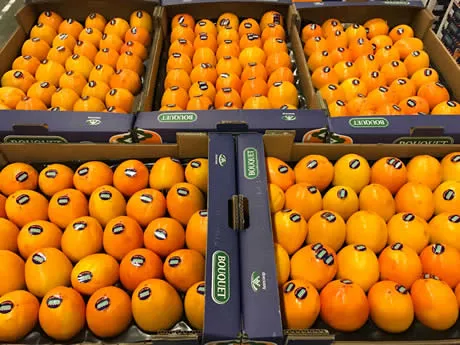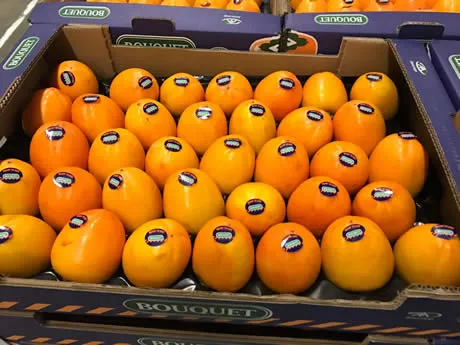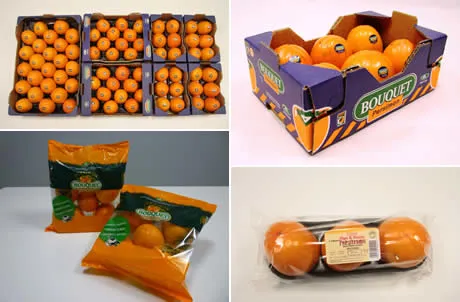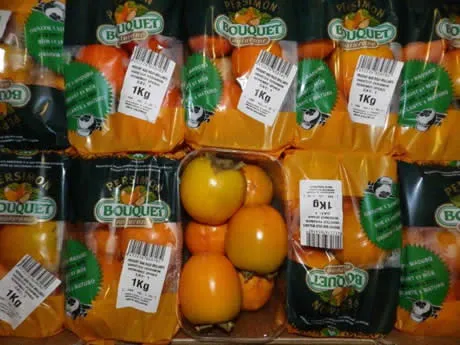The Spanish kaki season has burst forth again at Dutch produce wholesaler, 4Fruit Company. This company from Ridderkerk is a distributor for the Spanish cooperative, Anecoop. Anecoop grows no less than 25% of the kakis in Spain. Currently, the fruit's coloring is disappointing. The kakis' imperfect color is due to the warm summer and warm nights. "We are two weeks behind last year", says Pieter de Ruiter, who is part of the sales team at 4Fruit Company.

"Kakis need cold nights to develop their color. These conditions have been limited up to now. That is why there are so few kakis at the moment. We expect to harvest more kilograms by the end of the season. The kakis are, however, quite a bit smaller", says Pieter. "Supply is somewhat irregular due to the slow coloring. But now that the nights are getting cooler, the fruit will color faster. There should be sufficient kakis on the market within the next three weeks."

"Because of the limited supply, the prices are quite high. It is at a level of EUR2 for the larger sizes. The smaller ones are a few cents cheaper", Pieter continues. The 4Fruit Company sells most of their kakis in the Dutch market. They also have a loyal client base for kakis in Germany, Scandinavia, and Eastern Europe.

Kaki cultivation has expanded rapidly in recent years. "Over the last few years, many citrus farmers with, for instance, Okitsu and Satsuma orchards have switched to the lucrative kaki cultivation. So, it is easy to quickly conclude that the cultivation has grown quickly", he says.
"We have also seen the consumption grow year-on-year. If I look at how many kakis were sold a few years ago, compared to now, it is a world of difference. I get the impression that people, in the Netherlands too, are only now discovering the kaki. The advantage of Anecoop is that the company has been active with kakis since 1998. In 2003, the market made huge strides, but Anecoop still holds a leading position."

"Our main aim now is to also grow kakis in the Southern Hemisphere, in, for example, South Africa or Brazil. This expansion is needed to meet the year-round demand from clients. Here, it is important to have the correct ripening regiment. The kaki needs a little bit of ethylene. Then you cannot wait too long with sales, but it guarantees a good taste", concludes Pieter.
For more information:
Pieter de Ruiter
4 Fruit Company
30 Handelsweg
2988 DB Ridderkerk
Tel.: +31 (0) 180 641 902
pr@4fc.nl
www.4fruitcompany.nl
